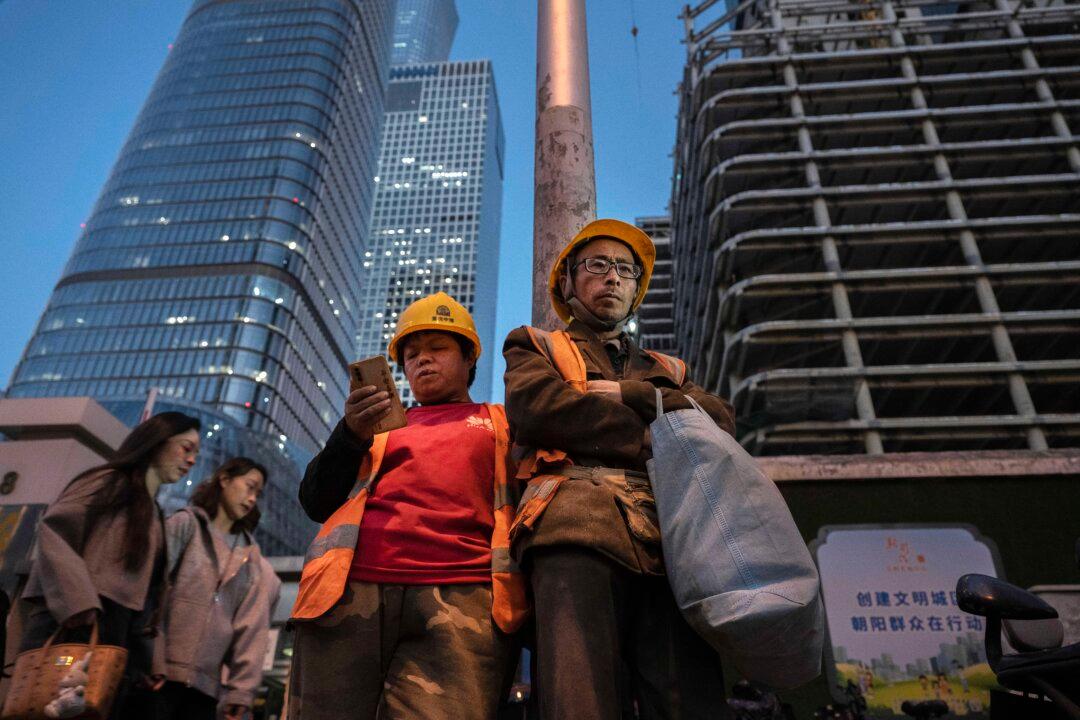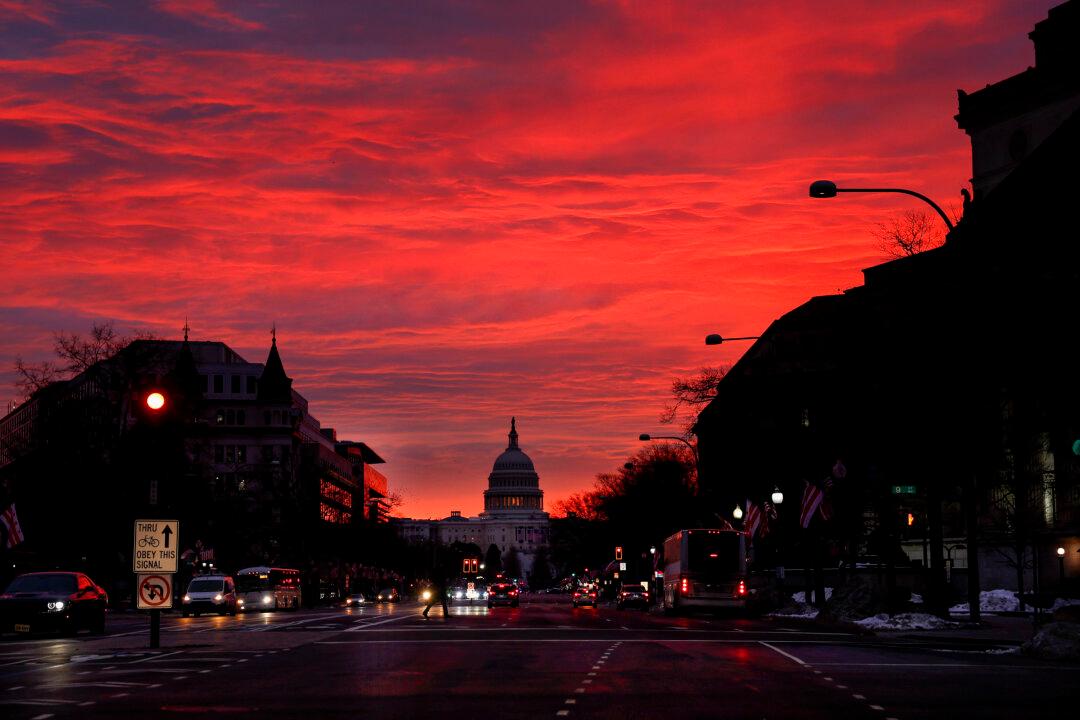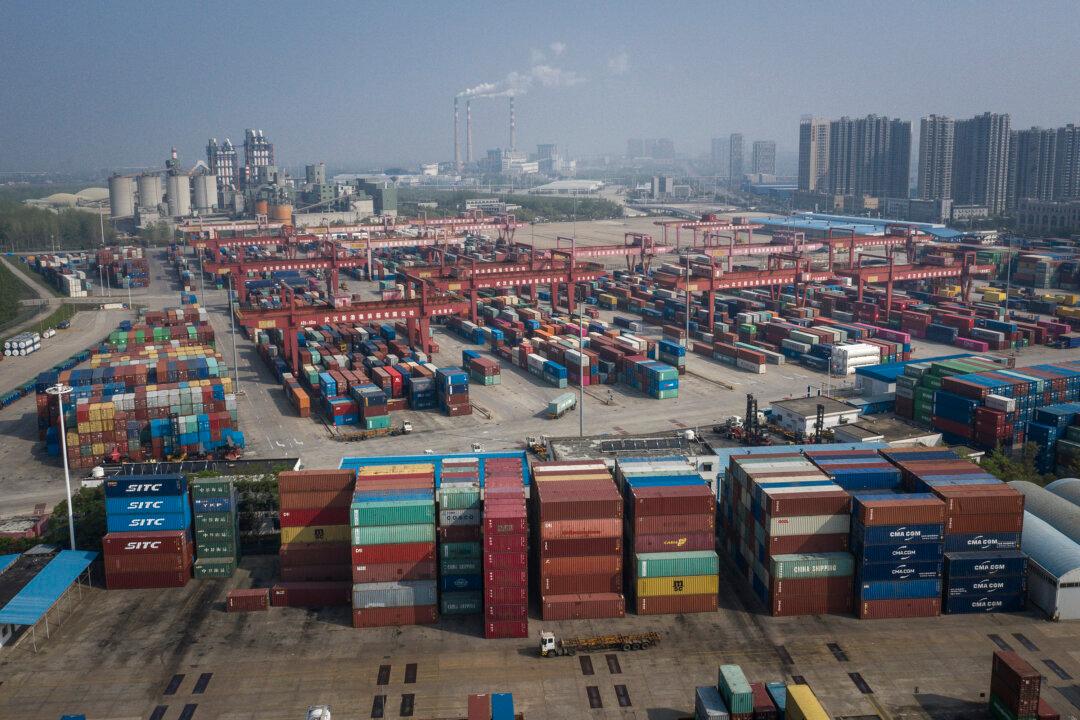China continues to suffer economic setbacks. The latest came with news that housing sales in July plunged almost 30 percent from June. Optimists had taken heart when housing sales had picked up in May and June in response to eased COVID-19 lockdowns, but the most recent news has dashed hopes for an easy recovery. Since housing amounts to some 30 percent of China’s gross domestic product (GDP), this news raises questions about the economy’s ability to meet the government’s target of 5.5. percent for real growth in 2022, or show much growth at all for that matter. It should be abundantly clear now—even to party leadership—that this crisis is serious and requires concerted action from Beijing. Yet, the Politburo, China’s top policy-making body, shows no inclination to act. This matter will not go away until it does.
The country’s real estate crisis began over a year ago, when the huge property developer Evergrande announced that it could not service all its debt. That announcement called into question some $300 billion in Evergrande liabilities. Since others, including individuals, banks, and other institutions, held those liabilities as assets, it also called into question their financial reliability. Since still more people had pre-purchased apartments in future Evergrande construction, the announcement also led to questions about the viability of the mortgage debt these people had incurred on those purchases. In other words, the potential for failure immediately spread far beyond Evergrande, and did so still more as other developers made similar announcements about their failures. Doubts then spread about anyone’s ability to meet their financial obligations.

Had Beijing acted promptly—not to help Evergrande but rather to protect confidence throughout China’s financial system—it might have prevented subsequent problems, including the recent plunge in housing sales. For instance, by making credit cheap and readily available, perhaps even from government sources, the People’s Bank of China (PBOC) might have reassured all that others were likely to meet their obligations and so restored confidence, despite the failures among property developers. Beijing might also have guaranteed that buyers would not lose the apartments for which they had prepaid. But no one in government made any such move or even halfway measures. And so the crisis festered and spread.
July’s sales drop is just the latest phase in this rolling and so far uncontrolled crisis. Earlier, financial institutions had to curtail their activities until they could assess their exposure and how vulnerable they were to the failed developers and to others with whom they were involved who also might fail because they were vulnerable to the failures, either directly or through third parties. That assessment eventually led banks, including the venerable Bank of China, to worry about their own balance sheets. At the same time, individual Chinese began to worry about financial institutions and, subsequently, began to withdraw deposits. This combination of events caused some of the banks, most notably the Bank of China, to protect themselves by putting limits on withdrawals. When people could not get their money, protests erupted which were so severe that units of the People’s Liberation Army took to the streets to maintain order.

While these ugly events were unfolding, those who had pre-purchased apartments from developers like Evergrande realized that they weren’t going to get any relief from government sources. In response, they threatened to stop payments on the mortgages on those nonexistent housing units. That threat, of course, raised more questions about the viability of a whole new set of lenders and further eroded confidence in Chinese finance. It is then little wonder that Chinese are reluctant to commit to purchase of a new dwelling.
Yet to date, Beijing has refused to take up any direct remedies beyond the PBOC’s small reduction in its target interest rate. Even as the crisis has lasted longer, grown larger, and become more dangerous than anyone—at least in Beijing—thought it would when it broke last year, the Politburo continues to insist that the solution lies with provincial and local governments. Such a claim would be dubious under any circumstances, but especially now that these smaller government units face an already huge burden of debt pressed on them by Beijing’s continued stress on huge infrastructure projects. Until Beijing acts, the crisis will continue to roll through the financial system and impair economic growth prospects for some time to come.





